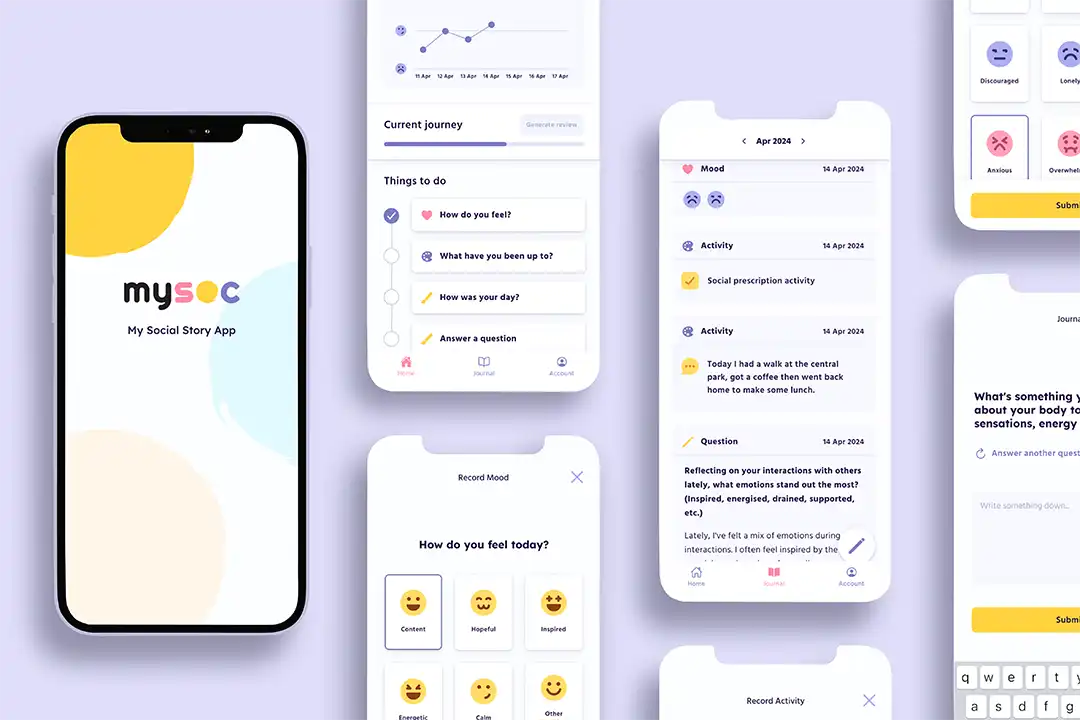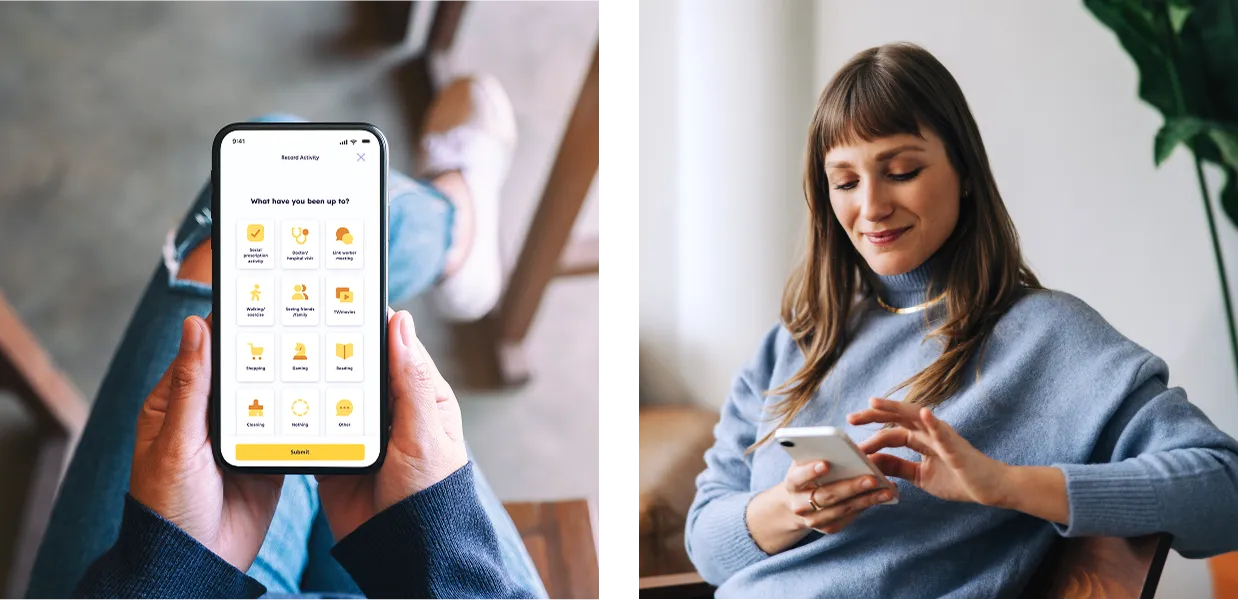Problem
The project aimed to address the challenge of measuring the impact of arts-based social prescription activities on mental well-being. There was no structured way to assess how these activities influenced individuals, and traditional methods of data collection, such as lengthy surveys, often led to low engagement.
A key uncertainty was whether users would adopt daily self-reflection as a habit and find it valuable in their mental health journey. Additionally, ensuring privacy and ethical AI use was crucial, as the app needed to balance data protection with meaningful insights.
Finally, the project was designed as a pilot with the potential for scalability, laying the groundwork for future integration with GPs and healthcare services. Success in this phase would help attract further investment and expand its role in digital mental health support.
Process
Our approach focused on collaboration, user research, and AI integration to ensure the MySoc app was both effective and user-friendly.

The first step was to create a placeholder brand, MySoc which would resonate with participants and their journey. We carefully considered colours and typography to avoid any clinical associations, ensuring the branding felt welcoming and accessible.
To gain a deeper understanding of user needs and behaviors, we conducted focus groups with potential participants (people who had opted into the project). These sessions provided valuable insights into how individuals engage with self-reflection, the challenges they face in forming new habits, and their expectations for a digital tool designed to support their mental well-being. The feedback from these discussions helped us refine the app’s core user journey and develop features that would encourage long-term engagement.
Once we had a solid foundation, we moved into design. We created wireframes and high-fidelity mockups, designing an interface that was simple, intuitive, and engaging.

With the user experience mapped out, we turned our attention to the integration of AI. One of the key features of the app was a set of curated AI-driven prompts designed to encourage meaningful self-reflection. These prompts were defined to help users process their experiences and emotions in a way that felt natural and supportive. At the same time, we explored ways to ring-fence AI interactions to ensure privacy and data protection remained at the forefront, laying the groundwork for a future rollout.
With the designs finalised, we moved into development and launched a 6-week pilot hosted by the Wolseley Trust. During this period, participants used the app to log daily reflections, while our team closely monitored engagement and gathered feedback through follow-up focus groups. These sessions allowed us to gain real-time insights into how users were interacting with the app, what aspects they found most valuable, and what challenges they faced in maintaining a habit of self-reflection.
“It’s easier for people to wallow in the negatives than recognise the positives in life, but the summary helped highlight and frame the positives in the way that a good friend or therapist might. I really liked the end report and could see its value.”
- MySoc App Participant

Solution
The MySoc app provided a structured yet flexible way for individuals to engage in daily self-reflection while measuring the impact of arts-based social prescription activities. At its core were AI-powered daily prompts, designed to encourage meaningful self-reflection and help users recognise patterns in their emotions and experiences.
At the end of the six-week pilot, participants received a personalised summary based on their reflections, reinforcing positive moments and progress. This feature helped individuals gain perspective on their journey, demonstrating the potential for scaling MySoc into wider healthcare and community support settings.
Outcome
Participants reported that taking just a few minutes each day to self-reflect gave them a sense of perspective and peace of mind.
The summary at the end of the pilot helped users recognise positive moments in their journey, much like a conversation with a therapist or trusted friend.
The findings showed strong potential for scalability, paving the way for integration with GPs and healthcare providers to support broader mental health initiatives.

"Elixel were brilliant at not only taking charge of the app build, but as serving as co-researchers alongside our project team of University of Plymouth staff. We’ve now piloted the MySoc ‘minimum viable product’ and had great results from our trial participants, enabling us to move into the next phase of app development. Elixel have offered a professional service which is second to none, but perhaps most uniquely brought to the project real enthusiasm and the desire for beneficial social change, which is what the project is ultimately all about. We recommend them completely."
- Anthony Caleshu, Professor of Poetry Director of the University’s Arts & Culture Programme, Programme Lead, MA Creative Writing University of Plymouth
.svg)






